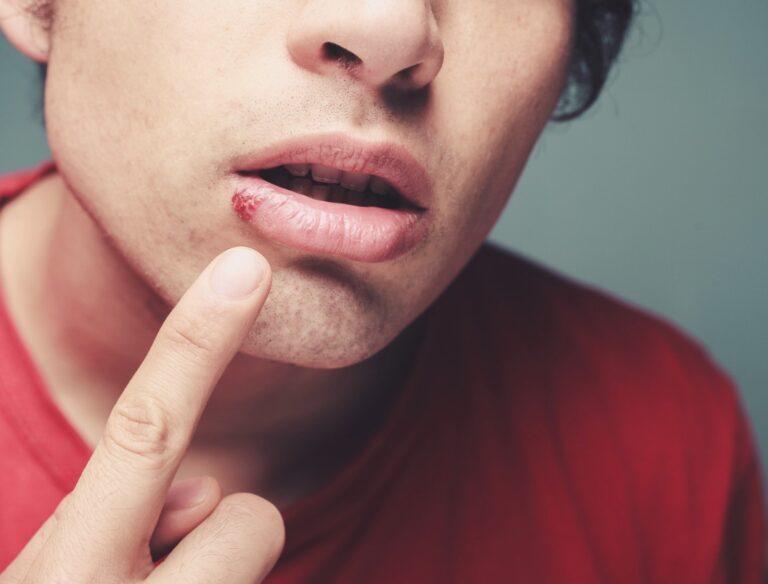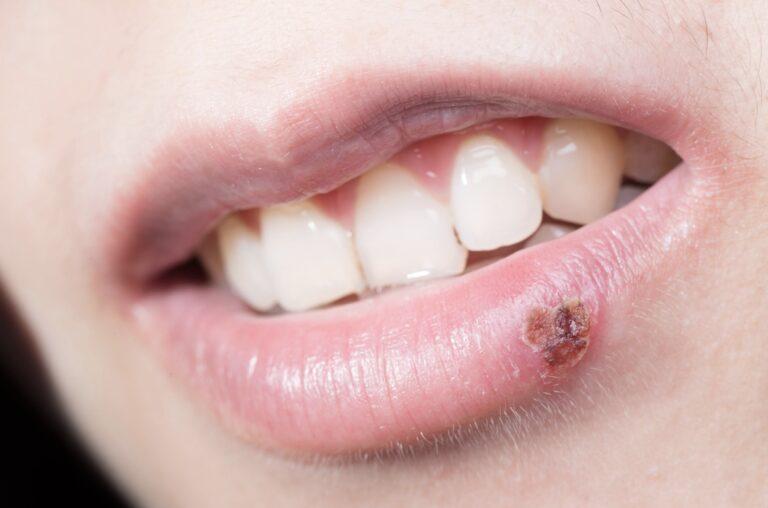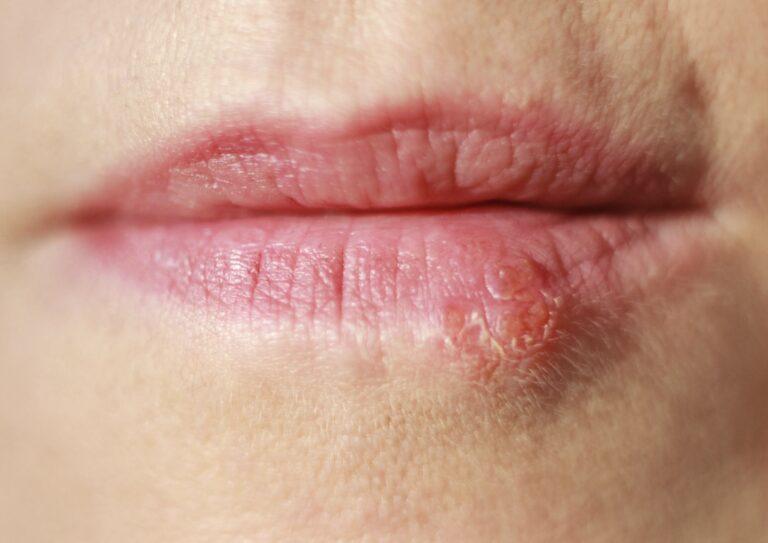Maybe you’ve got a cold sore, and you have some of these questions? That’s what we’re here for. We’ll let you know everything you need to know about cold sores, herpes, and sex. And we’re going to make it clear and super-simple.
What are cold sores?
Cold sores are small blisters that appear on your face, usually around or on your lips, but they can form elsewhere too, like on your cheeks or chin. They usually contain a clear liquid, and they usually burst and crust over. They typically last for around two weeks.
Are cold sores herpes?
Yes. Cold sores are caused by a herpes infection. This might sound scary, but herpes is a condition that can be effectively managed.
What is herpes?
Herpes is the name of a group of viruses, called herpes simplex viruses (HSV) that usually infect the skin. Cold sores are most often caused by an infection of the herpes simplex 1 strain of the virus (HSV-1).
How does herpes cause cold sores?
The herpes virus spreads between people by skin-to-skin contact, such as by being kissed by someone who has the cold sore blisters present on their face. The virus gets into the body through an opening, such as a cut or through your mouth. Once inside, it multiplies and spreads through the surrounding skin cells, causing the blisters to form on you.
Once you’ve been infected, the virus takes up residence in the nerve cells in your skin. Most of the time you won’t have any symptoms but now and again the virus spreads out of the nerve cells and through the skin causing another outbreak or flare up.
What does a herpes sore look like?
The sores can look different by person, but they typically look like this:
- The herpes sores usually start off as very small pink or white bumps
- The bumps redden and grow into blisters, and they often fill with a clear liquid
- The blisters may burst to form sores. They then crust over to form a patch of hard, dry, itchy skin
What is genital herpes?
Genital herpes is an infection of the herpes virus in the skin on and around the genitals, anus, or buttocks. Whereas cold sores are usually caused by the HSV-1 virus, genital herpes is usually caused by the HSV-2 version of the virus.
Can cold sores cause genital herpes?
Yes, they can. Genital herpes can also be caused by an infection of the HSV-1 virus on and around the genitals. It can be passed from face to genitals through oral sex, but also by touching the face and then touching the genitals. You can even pass a herpes infection from your face to your own genitals. This means you should avoid sex and oral sex if you or your partner have an outbreak of cold sores, and you should both wash your hands often with an antibacterial wash.
Do cold sores mean you have an STD?
Cold sores are not considered a sexually transmitted disease (STD), but genital herpes is as it’s most often caught through having sex with someone with genital herpes.
How common are herpes infections?
Herpes viruses are highly contagious; they spread easily from person to person, meaning they’re more common than you might think. It’s estimated that 67% of the world’s population is infected with the HSV-1 virus, and nearly 10% are infected with HSV-2.
Why don’t some people get symptoms of herpes?
Some people can be infected with a herpes virus but show no symptoms. Scientists don’t yet understand why these people never get blisters or sores, but they can still be contagious and pass the virus to others.
How do I protect myself against cold sores and genital herpes?
Herpes viruses are common and contagious, so they are very easy to catch, but you can try the following to help protect yourself:
- Don’t kiss anyone with cold sores or have oral sex with them, as they’re most contagious when the sores are present. Wait for seven days after they’ve cleared up before you kiss or have oral sex
- Don’t have sex with anyone who has visible genital sores, as they’re most contagious when the sores are present. Wait for seven days after they’ve cleared up before you have sex
- Use protection such as condoms when you have sex with someone with genital herpes when the sores aren’t present, as they can still pass the infection on through their bodily fluids
- Don’t share sex toys with someone who has genital herpes. Herpes usually can’t be passed by sharing objects like towels or by sitting on the same toilet seat, as the virus dies quickly when away from the body, but there is a chance of transmitting it by sharing sex toys
- If you’re in contact with someone who has cold sores or genital sores, try not to touch them, and use an antibacterial wash to regularly clean your hands just in case
Can I take medications for cold sores and genital herpes?
If you catch a herpes virus, unfortunately, it’s with you for life. The virus takes up residence in your body, and there’s no cure that can remove it for good. You can take medications to help manage the condition though. Valacyclovir and Valtrex are antiviral drugs which can help limit the severity of outbreaks, clear them up quicker, and reduce the pain. They can even be taken to lessen the chances of an outbreak happening.
You can order valacyclovir or Valtrex directly from us at NowPatient. Start an online consultation by entering your medical history and symptoms. If approved, you’ll receive a treatment plan from our doctors within two hours, and your meds will be shipped for free to your door within two days.
Although there’s a lot of myth and misinformation around cold sores, herpes, and genital herpes, there shouldn’t be. It can be easy to understand what they are and what causes them if explained simply. We hope this guide helps.









